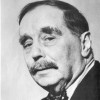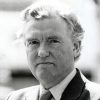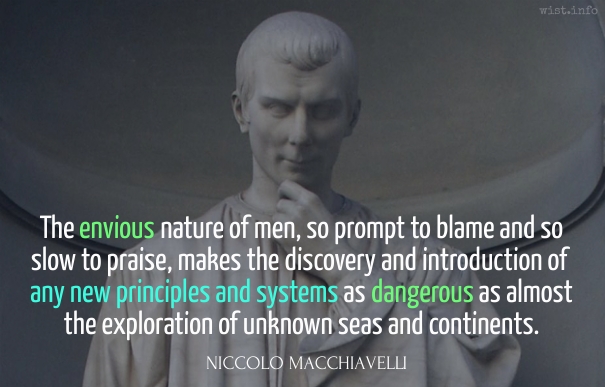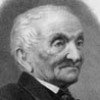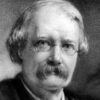IMMORALITY. The morality of those who are having a better time.
H. L. Mencken (1880-1956) American writer and journalist [Henry Lewis Mencken]
The Book of Burlesques, “The Jazz Webster” (1920)
(Source)
Variant:
Immorality is the morality of those who are having a better time.
[Chrestomathy, ch. 30 "Sententiae" (1949)]
Quotations about:
envy
Note not all quotations have been tagged, so Search may find additional quotes on this topic.
Then kiss me, sweet, while kiss we may.
A thousand kisses, hundreds then.
And straightway we’ll begin again —
Another thousand, hundreds more.
And still a thousand as before.
Till hundred thousands we shall kiss.
And lose all count in drunken bliss,
Lest green-eyed envy, in dull spite,
Should steal away our deep delight.
[Da mi basia mille, deinde centum,
dein mille altera, dein secunda centum,
deinde usque altera mille, deinde centum,
dein, cum milia multa fecerimus,
conturbabimus illa, ne sciamus,
aut ne quis malus invidere possit,
cum tantum sciat esse basiorum.]Catullus (c. 84 BC – c. 54 BC) Latin poet [Gaius Valerius Catullus]
Carmina # 5 “To Lesbia,” ll. 8-14 [tr. Stewart (1915)]
(Source)
One of Catulllus' most popular and widely-translated poems.
(Source (Latin)). Alternate translations:
Then let amorous kisses dwell
On our lips, begin and tell
A thousand, and a Hundred score,
An Hundred and a Thousand more,
Till another Thousand smother
That, and that wipe off another.
Thus at last when we have numbred
Many a Thousand, many a Hundred,
We'll confound the reckoning quite,
And lose ourselves in wild delight:
While our joyes so multiply
As shall mocke the envious eye.
[tr. Crashaw (1648)]
Give me, then, a thousand kisses,
Twice ten thousand more bestow,
Till the sum of boundless blisses
Twice ten thousand more bestow,
Neither we nor envy know.
[tr. Langhorne (c. 1765)]
Then first a thousand kisses give,
An hundred let me next receive,
Twice ten thousand more bestow,
Another thousand yet;
To these a second hundred join,
Still be another thousand mine,
Twice ten thousand more bestow,
An hundred then repeat:
Such countless thousands let there be,
Sweetly confus'd ; that even we
Twice ten thousand more bestow,
May know not the amount;
That envy, so immense a store
Beholding, may not have the pow'r
Twice ten thousand more bestow,
Each various kiss to count.
[tr. Nott (1795)]
Then come, with whom alone I'll live,
A thousand kisses take and give!
Another thousand! to the store
Add hundreds -- then a thousand more!
And when they to a million mount,
Let confusion take the account, --
That you, the number never knowing,
May continue still bestowing
That I for joys may never pine,
Which never can again be mine!
[tr. Coleridge (1798)]
Give me kisses thousand-fold,
Twice ten thousand more bestow,
Add to them a hundred more;
Other thousands still be told
Twice ten thousand more bestow,
Other hundreds o'er and o'er.
But, with thousands when we burn,
Twice ten thousand more bestow,
Mix, confuse the sums at last,
That we may not blushing learn
Twice ten thousand more bestow,
All that have between us past.
None shall know to what amount
Twice ten thousand more bestow,
Envy's due for so much bliss;
None -- for none shall ever count
Twice ten thousand more bestow,
All the kisses we will kiss.
[tr. Lamb (1821)]
Give me then a thousand kisses,
Add a hundred to my blisses,
Then a thousand more, and then
Add a hundred once again.
Crown me with a thousand more,
Give a hundred as before,
Then kiss on without cessation,
Till we lose all calculation,
And no envy mar our blisses,
Hearing of such heaps of kisses.
[tr. T. Martin (1861)]
Then, charmer mine, with lip divine!
Twice ten thousand more bestow,
Give me a thousand kisses;
A hundred then, then hundreds ten,
Twice ten thousand more bestow,
Then other hundred blisses.
Lip thousands o'er, sip hundreds more
Twice ten thousand more bestow,
With panting ardour breathing;
Fill to the brim love's cup, its rim
Twice ten thousand more bestow,
With rosy blossoms wreathing.
We'll mix them then, lest to our ken
Twice ten thousand more bestow,
Should come our store of blisses,
Or envious wight should know, and blight
Twice ten thousand more bestow,
So many honey' d kisses.
[tr. Cranstoun (1867)]
Thousand kisses, anon to these an hundred,
Thousand kisses again, another hundred,
Thousand give me again, another hundred.
Then once heedfully counted all the thousands,
We'll uncount them as idly; so we shall not
Know, nor traitorous eye shall envy, knowing
All those myriad happy many kisses.
[tr. Ellis (1871)]
Kiss me a thousand times, then hundred more,
Then thousand others, then a new five-score,
Still other thousand other hundred store.
Last when the sums to many thousands grow,
The tale let's trouble till no more we know,
Nor envious wight despiteful shall misween us
Knowing how many kisses have been kissed between us.
[tr. Burton (1893)]
Give me a thousand kisses, and then a hundred, then another thousand, then a second hundred, then another thousand without resting, then a hundred. Then, when we have made many thousands, we will confuse the count lest we know the numbering, so that no one can cast an evil eye on us through knowing the number of our kisses.
[tr. Smithers (1894)]
Come, in yonder nook reclining,
Twice ten thousand more bestow,
Where the honeysuckle climbs,
Let us mock at Fate's designing,
Twice ten thousand more bestow,
Let us kiss a thousand times!
And if they shall prove too few, dear,
When they're kissed we'll start anew, dear!
And should any chance to see us,
Twice ten thousand more bestow,
Goodness! how they'll agonize!
How they'll wish that they could be us,
Twice ten thousand more bestow,
Kissing in such liberal wise!
Never mind their envious whining;
Come, my Lesbia, no repining!
[tr. Field (1896)]
Give me a thousand kisses, then a hundred, then another thousand, then a second hundred, then yet another thousand, then a hundred. Then, when we have made up many thousands, we will confuse our counting, that we may not know the reckoning, nor any malicious person blight them with evil eye, when he knows that our kisses are so many.
[tr. Warre Cornish (1904)]
Give me then a thousand kisses, then a hundred, then another thousand, then a second hundred, then still another thousand, then one more hundred, then when we have had many a thousand, let us jostle them up, so that we may not keep count and no jealous-eyed person may envy us, knowing the number of our kisses.
[tr. Stuttaford (1912)]
Then oh my Lesbia!
Live and love!
Quick to my arms, and quick to my heart!
A thousand kisses!
Ten thousand kisses!
Have done with a million! Then start
Again; for I fear
Some wretch may envy us, dear,
[tr. Dement (1915)]
Come then , give me of kisses now a hundred,
Then a thousand and then yet hundreds other;
When our kisses their many thousands measure,
Blot the score out and reckon it as nothing,
Lest some evil eye paralyse our pleasure,
Seeing jealously such a wealth of loving.
[tr. Symons-Jeune (1923)]
A thousand kisses, then five score,
A thousand and a hundred more,
Then one for each you gave before.
Then, as the many thousands grow,
We'll wreck the counting lest we know,
Or lest an evil eye prevail
Through knowledge of the kisses' tale.
[tr. MacNaghten (1925)]
Let me a hundred kisses take
And then of them a thousand make,
A hundred and a thousand more
Repeated twice shall swell the score.
But when to thousands we shall get,
We will the reckoning upset;
That none may envy us our bliss
Knowing the number of each kiss.
[tr. Wright (1926)]
Twice ten thousand more bestow,
Give me a thousand kisses,
then a hundred, another thousand,
another hundred
Twice ten thousand more bestow,
and in one breath
still kiss another thousand,
another hundred.
Twice ten thousand more bestow,
O then with lips and bodies joined
many deep thousands;
Twice ten thousand more bestow,
confuse
their number
Twice ten thousand more bestow,
so that poor fools and cuckolds (envious
even now) shall never
learn our wealth and curse us
with their
evil eyes.
[tr. Gregory (1931)]
Give me a thousand kisses, then a hundred,
another thousand next, another hundred,
a thousand without pause & then a hundred,
until when we have run up our thousands
we will cry bankrupt, hiding our assets
from ourselves & any who would harm us,
knowing the volume of our trade in kisses.
[tr. C. Martin (1979)]
Give me a thousand kisses, a hundred more,
another thousand, and another hundred,
and, when we’ve counted up the many thousands,
confuse them so as not to know them all,
so that no enemy may cast an evil eye,
by knowing that there were so many kisses.
[tr. Kline (2001)]
Give me a thousand kisses, then another hundred,
then another thousand, then a second hundred,
then yet another thousand more, then another hundred.
Then, when we have made many thousands,
we will mix them all up so that we don't know,
and so that no one can be jealous of us when he finds out
how many kisses we have shared.
[tr. Negenborn (1997)]
Give me a thousand kisses, then a hundred,
then a thousand more, a second hundred,
then yet another thousand then a hundred
then when we've notched up all these many thousands,
shuffle the figures, lose count of the total,
so no maleficent enemy can hex us
knowing the final sum of all our kisses.
[tr. Green (2005)]
So kiss me, Sweet, and kiss me plenty:
First a thousand, then a hundred kisses;
Then catch your breath and kiss me more:
Another thousand, another hundred,
Still thousands yet till we've lost all count
And must begin again, keeping
Envious others guessing the sum
Of how many kisses much we love.
[tr. Hager (2006)]
Give me a thousand kisses and then a hundred,
then another thousand and a second hundred,
And even then another thousand, a hundred more.
When we’ve had so many thousands,
we will mix them together so we don’t know,
so that no wicked man can feel envy
when he knows what a number of kisses there’ve been.
[tr. @sentantiq (2015)]
Give me a thousand kisses, then a hundred,
then a thousand others, then a second hundred,
then up to a thousand others, then a hundred.
Then, when we have made many thousands,
we will mix them up, lest we should know,
--or lest any evil person should be able to envy us
when he knows--how many kisses there are.
[tr. Wikibooks (2017)]
Give me a thousand kisses, then a hundred,
then another thousand, then a second hundred,
then immediately a thousand then a hundred.
then, when we will have made many thousand kisses,
we will throw them into confusion, lest we know,
or lest anyone bad be able to envy
when he knows there to be so many kisses.
[tr. Wikisource (2018)]
CONGRATULATION, n. The civility of envy.
Ambrose Bierce (1842-1914?) American writer and journalist
“Congratulation,” The Cynic’s Word Book (1906)
(Source)
Included in The Devil's Dictionary (1911). Originally published in the "Devil's Dictionary" column in the San Francisco Wasp (1881-08-12).
Some think they see their own hope to advance
tied to their neighbor’s fall, and thus they long
to see him cast down from his eminence;
Some fear their power, preferment, honor, fame
will suffer by another’s rise, and thus,
irked by his good, desire his ruin and shame;
And some at the least injury catch fire
and are consumed by thoughts of vengeance; thus,
their neighbor’s harm becomes their chief desire.
[E’ chi, per esser suo vicin soppresso,
spera eccellenza, e sol per questo brama
ch’el sia di sua grandezza in basso messo;
è chi podere, grazia, onore e fama
teme di perder perch’altri sormonti,
onde s’attrista sì che ’l contrario ama;
ed è chi per ingiuria par ch’aonti,
sì che si fa de la vendetta ghiotto,
e tal convien che ’l male altrui impronti.]Dante Alighieri (1265-1321) Italian poet
The Divine Comedy [Divina Commedia], Book 2 “Purgatorio,” Canto 17, l. 115ff (17.115-123) (1314) [tr. Ciardi (1961)]
(Source)
Virgil explains to Dante how "bad" love -- love for self, love of another's harm -- can manifest as Pride, Envy, or Wrath toward others, the sins addressed in the first three tiers of Purgatory.
(Source (Italian)). Alternate translations:
Those first the taints, that to their Neighbours' fall
Trust for distinction on this Earthly Ball,
In talents, wealth, or fame, and feed their pride
By the sad sight of others' hopes depress'd,
And o'er their ruin lift a lofty crest,
With Venom from the fount of Good supply'd.
The next that feel this sullen Stygian flame,
Are those, that fear to lose their wealth or fame,
Or any gift, by bounteous Heav'n assign'd;
And long possess'd of Fortune's turning wheel,
In its ascent another name reveal,
That threats to leave them, and their hopes behind.
Another evil thus becomes their good,
And feeds their black desires with Demon food. --
The third are they, who, with the sense of wrong,
Burn inward, or with fell, vindictive Wrath
Pursue their brethren to the Cave of Death,
By love of Pelf, or fiend-like Frenzy stung.
[tr. Boyd (1802), st. 28-30]
There is who hopes (his neighbour’s worth deprest,)
Preeminence himself, and coverts hence
For his own greatness that another fall.
There is who so much fears the loss of power,
Fame, favour, glory (should his fellow mount
Above him), and so sickens at the thought,
He loves their opposite: and there is he,
Whom wrong or insult seems to gall and shame
That he doth thirst for vengeance, and such needs
Must doat on other’s evil.
[tr. Cary (1814)]
There is, in order neighbour to suppress,
Who would excel, himself, his sole desire
Grandeur, that sees another in the mire:
There is who power, grace, and honour, fame,
Still fears to lose, because the rest surpass,
Grows sad, and loves the counteracting cause:
There is who, for injurious affront,
Revenge desires, thirsts for another's pain,
And hence to ill of others must attain.
[tr. Bannerman (1850)]
There are, who, by abasement of their neighbour,
Hope to excel, and therefore only long
That from his greatness he may be cast down;
There are, who power, grace, honour, and renown
Fear they may lose because another rises,
Thence are so sad that the reverse they love;
And there are those whom injury seems to chafe,
So that it makes them greedy for revenge,
And such must needs shape out another's harm.
[tr. Longfellow (1867)]
There is who, through his neighbour being kept down, hopes for excellence, and only for this reason yearns that he may be from his greatness brought low. There is who fears to lose power, grace, honour, and fame, in case another mounts up, wherefore he grows so sad that he loves the contrary. And there is who through injury appears so to take shame that he becomes gluttonous of vengeance; and such an one it behoves that he put forward another's ill.
[tr. Butler (1885)]
There is, who through his neighbour's ruin, so
Hopeth pre-eminence, who hence doth call
That he from grandeur may be cast down low.
There is, who fears to lose power, grace, and all
Honour and fame, because that others rise.
Which grieves him so that he desires their fall.
There is, who seems so hurt by injuries,
That he on vengeance greedily doth brood;
And such a one another's ill must prize.
[tr. Minchin (1885)]
There is he who hopes to excel through the abasement of his neighbor, and only longs that from his greatness he may be brought low. There is he who fears loss of power, favor, honor, fame, because another rises; whereat he is so saddened that he loves the opposite. And there is he who seems so outraged by injury that it makes him gluttonous of vengeance, and such a one must needs coin evil for others.
[tr. Norton (1892)]
There is he who through his neighbour's abasement hopes to excel, and solely for this desires that he be cast down from his greatness;
there is he who fears to lose power, favour, honour and fame because another is exalted, wherefore he groweth sad so that he loves the contrary;
and there is he who seems to be so shamed through being wronged, that he becomes greedy of vengeance, and such must needs seek another's hurt.
[tr. Okey (1901)]
There is he that hopes to excel by the abasement of his neighbour and for that sole reason longs that from his greatness he may be brought low; there is he that fears to lose power, favour, honour, and fame because another surpasses, by which he is so aggrieved that he loves the contrary; and there is he that feels himself so disgraced by insult that he becomes greedy of vengeance, and such a one must needs contrive another's harm.
[tr. Sinclair (1939)]
There is, who through his neighbour's overthrow
Hopes to excel, and only for that cause
Longs that he may from greatness be brought low.
There is, who fears power, favour, fame to lose
Because another mounts; wherefore his lot
So irks, he loves the opposite to choose.
And there is, who through injury grows so hot
From shame, with greed of vengeance he is burned,
And so must needs another's ill promote.
[tr. Binyon (1943)]
Some hope their neighbour’s ruin may divert
His glory to themselves, and this sole hope
Prompts them to drag his greatness in the dirt;
Some, in their fear to lose fame, favour, scope,
And honour, should another rise to power,
Wishing the worst, sit glumly there and mope;
And some there are whose wrongs have turned them sour,
So that they thirst for vengeance, and this passion
Fits them to plot some mischief any hour.
[tr. Sayers (1955)]
There is he that hopes to excel by the abasement of his neighbor, and solely for this desires that he be cast down from greatness.
There is he that fears to lose power, favor, honor, and fame, because another is exalted, by which he is so saddened that he loves the contrary.
And there is he who seems so outraged by injury that he becomes greedy of vengeance, and such a one must needs contrive another's hurt.
[tr. Singleton (1973)]
There is the man who sees his own success
connect to his neighbor's downfall; thus,
he longs to see him fall from eminence.
Next, he who fears to lose honor and fame,
power and favor, if his neighbor rise:
vexed by this good, he wishes for the words.
Finally, he who, wronged, flares up in rage:
with his great passion for revenge, he thinks
only of how to harm his fellow man.
[tr. Musa (1981)]
There is the man who, through the suppression of his neighbour,
Hopes to excel, and for that reason only
Desires to see him cast down from his greatness:
There is the man who fears to lose power, favour,
Honour and glory because of another’s success,
And so grieves for it that he loves the opposite:
And there is the man who takes umbrage at injury
So that he becomes greedy for revenge
And such a man must seek to harm another.
[tr. Sisson (1981)]
There’s he who, through abasement of another,
hopes for supremacy; he only longs
to see his neighbor’s excellence cast down.
Then there is one who, when he is outdone,
fears his own loss of fame, power, honor, favor;
his sadness loves misfortune for his neighbor.
And there is he who, over injury
received, resentful, for revenge grows greedy
and, angrily, seeks out another’s harm.
[tr. Mandelbaum (1982)]
There are those who hope for supremacy through their neighbor’s being kept down, and only on this account desire that his greatness be brought low;
there are those who fear to lose power, favor, honor, or fame because another mounts higher, and thus are so aggrieved that they love the contrary;
and there are those who seem so outraged by injury that they become greedy for revenge, and thus they must ready harm for others.
[tr. Durling (2003)]
There are those who hope to excel through their neighbour’s downfall, and because of this alone want them toppled from their greatness. This is Pride.
There are those who fear to lose, power, influence, fame or honour because another is preferred, at which they are so saddened they desire the contrary. This is Envy.
And there are those who seem so ashamed because of injury, that they become eager for revenge, and so are forced to wish another’s harm. This is Wrath.
[tr. Kline (2002)]
Some hope, by keeping all their neighbours down, that they'll excel. They yearn for that alone -- to see them brought from high to low estate.
Then, some will fear that, if another mounts, they'll lose all honour, fame and grace and power, so, grieving at success, love what it’s not.
And some, it seems, when hurt, bear such a grudge that they crave only to exact revenge -- which means they seek to speed another’s harm.
[tr. Kirkpatrick (2007)]
There is the one, hoping to excel by bringing down
his neighbor, who, for that sole reason, longs
that from his greatness his neighbor be brought low.
There is the one who fears the loss of power, favor,
honor, fame -- should he be bettered by another.
This so aggrieves him that he wants to see him fall.
And there is the one who thinks himself offended
and hungers after vengeance,
and he must then contrive another's harm.
[tr. Hollander/Hollander (2007)]
First, there's the man who aspires to excellence
By pressing down his neighbor: only this yearning
Makes him strive to pull his neighbor to the ground.
Then there's the man with power, favor, and honor,
And so afraid of losing these when someone
Climbs above him, that he hates what once he loved.
And there's the man who, outraged at being insulted,
Lusts for the chance of taking revenge, and rushes
Into wicked plans for hurting others.
[tr. Raffel (2010)]
Every other sin hath some pleasure annexed to it, or will admit of an excuse; envy alone wants both. Other sins last but for awhile; the gut may be satisfied, anger remits, hatred hath an end, envy never ceaseth.
[Omne peccatum aut excusationem secum habet, aut voluptatem, sola invidia utraque caret, reliqua vitia finem habent, ira defervescit, gala satiatur, odium finem habet, invidia nunquam quiescit.]
Robert Burton (1577-1640) English scholar
The Anatomy of Melancholy, 1.2.3.7 (1621-51)
(Source)
Burton is quoting here, but it is unclear whom.
Envy iz sutch a constant companyun, that if we find no one abuv us to envy, we will envy thoze below us.
[Envy is such a constant companion, that if we find no one above us to envy, we will envy those below us.]
Josh Billings (1818-1885) American humorist, aphorist [pseud. of Henry Wheeler Shaw]
Everybody’s Friend, Or; Josh Billing’s Encyclopedia and Proverbial Philosophy of Wit and Humor, “Plum Pits” (1874)
(Source)
You would think we would envy only what we love, for being loveable. But no, we envy those the world loves, because we care less for being loveable than being loved.
James Richardson (b. 1950) American poet
“Vectors: 56 Aphorisms and Ten-second Essays,” Michigan Quarterly Review, # 37 (Spring 1999)
(Source)
Wise is he who instead of grieving over what he lacks delights in what he has.
[Εὐγνώμων ὁ μὴ λυπεόμενος ἐφ’ οἷσιν οὐκ ἔχει, ἀλλὰ χαίρων ἐφ’ οἷσιν ἔχει.]
Democritus (c. 460 BC - c. 370 BC) Greek philosopher
Frag. 231 (Diels) [tr. @sententiq (2016)]
(Source)
Original Greek. Diels citation "231 (61 N.)"; collected in Joannes Stobaeus (Stobaios) Anthologium III, 17, 25. Bakewell lists this under "The Golden Sayings of Democritus." Freeman notes this as one of the Gnômae, from a collection called "Maxims of Democratês," but because Stobaeus quotes many of these as "Maxims of Democritus," they are generally attributed to the latter. Alternate translations:
- "A sensible man takes pleasure in what he has instead of pining for what he has not." [tr. Bakewell (1907)]
- "The right-minded man is he who is not grieved by what he has not, but enjoys what he has." [tr. Freeman (1948)]
- "A man of sound judgement is not grieved by what he does not possess but rejoices in what he does possess." [tr. Barnes (1987)]
- "A sensible man does not grieve for what he has not, but enjoys what he has." [Source]
Envy is the gasoline on which American capitalism runs.
John Lahr (b. 1941) British-based American theater critic, author
“Lives in Limbo,” The New Yorker (26 Mar 2012)
(Source)
Low people, in good circumstances, fine clothes, and equipage, will insolently show contempt for all those who cannot afford as fine clothes, as good an equipage, and who have not (as they term it) as much money in their pockets: on the other hand, they are gnawed with envy, and cannot help discovering it, of those who surpass them in any of these articles; which are far from being sure criterions of merit.
Lord Chesterfield (1694-1773) English statesman, wit [Philip Dormer Stanhope]
Letter to his son, #167 (29 Oct 1748)
(Source)
HENRY: This story shall the good man teach his son;
And Crispin Crispian shall ne’er go by
From this day to the ending of the world,
But we in it shall be remember’d, —
We few, we happy few, we band of brothers.
For he to-day that sheds his blood with me,
Shall be my brother; be he ne’er so vile,
This day shall gentle his condition:
And gentlemen in England, now a-bed,
Shall think themselves accurs’d, they were not here,
And hold their manhoods cheap, whiles any speaks,
That fought with us upon Saint Crispin’s day.William Shakespeare (1564-1616) English dramatist and poet
Henry V, Act 4, sc. 3, l. 58ff (4.3.58-69) (1599)
(Source)
No one would have believed in the last years of the nineteenth century that this world was being watched keenly and closely by intelligences greater than man’s and yet as mortal as his own; that as men busied themselves about their various concerns they were scrutinized and studied, perhaps almost as narrowly as a man with a microscope might scrutinize the transient creatures that swarm and multiply in a drop of water. With infinite complacency men went to and fro over this globe about their little affairs, serene in their assurance of their empire over matter. It is possible that the infusoria under the microscope do the same. No one gave a thought to the older worlds of space as sources of human danger, or thought of them only to dismiss the idea of life upon them as impossible or improbable. It is curious to recall some of the mental habits of those departed days. At most terrestrial men fancied there might be other men upon Mars, perhaps inferior to themselves and ready to welcome a missionary enterprise. Yet across the gulf of space, minds that are to our minds as ours are to those of the beasts that perish, intellects vast and cool and unsympathetic, regarded this earth with envious eyes, and slowly and surely drew their plans against us. And early in the twentieth century came the great disillusionment.
H.G. Wells (1866-1946) British writer [Herbert George Wells]
The War of the Worlds, Book 1, ch. 1 (1898)
(Source)
The urge to distribute wealth equally, and still more the belief that it can be brought about by political action, is the most dangerous of all popular emotions. It is the legitimation of envy, of all the deadly sins the one which a stable society based on consensus should fear the most. The monster state is a source of many evils; but it is, above all, an engine of envy.
The envious nature of men, so prompt to blame and so slow to praise, makes the discovery and introduction of any new principles and systems as dangerous as almost the exploration of unknown seas and continents.
Moral indignation is in most cases 2 percent moral, 48 percent indignation, and 50 percent envy.
Vittorio De Sica (1901-1974) Italian neorealist director and actor
In The Observer (1961)
See also H. G. Wells.
CALAMITY, n. A more than commonly plain and unmistakable reminder that the affairs of this life are not of our own ordering. Calamities are of two kinds: misfortune to ourselves, and good fortune to others.
Every man hath in his own life sins enough, in his own mind trouble enough, in his own fortune evils enough, and in performance of his offices failings more than enough, to entertain his own inquiry; so that curiosity after the affairs of others cannot be without envy, and an evil mind. What is it to me, if my neighbour’s grandfather were a Syrian, or his grandmother illegitimate; or that another is indebted five thousand pounds, or whether his wife be expensive?
ORLANDO: But, O, how bitter a thing it is to look into happiness through another man’s eyes!
William Shakespeare (1564-1616) English dramatist and poet
As You Like It, Act 5, sc. 2, l. 45ff (5.2.45) (1599)
(Source)
MORELLA: Greatness is never appreciated in youth, called pride in middle age, dismissed in old age, and reconsidered in death. Because we cannot tolerate greatness in our midst we do all we can to destroy it.
With the greater part of rich people, the chief enjoyment of riches consists in the parade of riches, which in their eye is never so complete as when they appear to possess those decisive marks of opulence which nobody can possess but themselves.
Everything is un-American that tends either to government by a plutocracy, or government by a mob. To divide along the lines of section or caste or creed is un-American. All privilege based on wealth, and all enmity to honest men merely because they are wealthy, are un-American — both of them equally so. Americanism means the virtues of courage, honor, justice, truth, sincerity, and hardihood — the virtues that made America. The things that will destroy America are prosperity-at-any-price, peace-at-any-price, safety-first instead of duty-first, the love of soft living, and the get-rich-quick theory of life.
The Rich knowes not who is his friend.
George Herbert (1593-1633) Welsh priest, orator, poet.
Jacula Prudentum, or Outlandish Proverbs, Sentences, &c. (compiler), # 865 (1640 ed.)
(Source)
The first thing that happens to men once they have had to give up any pleasure, whether for propriety’s sake, or from satiety, or for their health, is to condemn it in other people. Such behavior implies a sort of attachment to the very things one has just renounced: we want nobody else to enjoy the good things that we have lost; it is a feeling of jealousy.
[La première chose qui arrive aux hommes après avoir renoncé aux plaisirs, ou par bienséance, ou par lassitude, ou par régime, c’est de les condamner dans les autres. Il entre dans cette conduite une sorte d’attachement pour les choses mêmes que l’on vient de quitter; l’on aimerait qu’un bien qui n’est plus pour nous ne fût plus aussi pour le reste du monde: c’est un sentiment de jalousie.]
Jean de La Bruyère (1645-1696) French essayist, moralist
The Characters [Les Caractères], ch. 11 “Of Mankind [De l’Homme],” § 112 (11.112) (1688) [tr. Stewart (1970)]
(Source)
(Source (French)). Alternate translations:
The first thing men do, when they have renounc'd pleasure, either out of decency, surfeit, or conviction, is to condemn it in others. This sort of management is however seldom free from a particular affection for those very things they left off, but they would have no body enjoy the pleasure they can no longer enjoy themselves, which proceeds more from Jealousie than any thing else.
[Bullord ed. (1696)]
The first thing Men do, when they have renounc'd Pleasure, either out of Decency, Surfeit, or Conviction, is to condemn it in others. They preserve, in this Conduct, a sort of Affection for the very things they left off; they would have no body enjoy the Pleasure they can no longer enjoy themselves: 'Tis a sentiment of Jealousy.
[Curll ed. (1713)]
The first Thing, when Men have renounced Pleasure, either out of Decency, Satiety, or Necessity, is to condemn it in others. This Sort of Reproof, however, is not free from a latent Affection for their forsaken Pleasures; they would interdict to all others what they can themselves no longer enjoy; their Admonitions are the Snarlings of Jealousy, not the Dictates of Purity.
[Browne ed. (1752)]
The first thing men do when they have renounced pleasure, through decency, lassitude, or for the sake of health, is to condemn it in others. Such conduct denotes a kind of latent affection for the very things they left off; they would like no one to enjoy a pleasure they can no longer indulge in; and thus they show their feelings of jealousy.
[tr. Van Laun (1885)]
Wealth is not without its advantages, and the case to the contrary, although it has often been made, has never proved widely persuasive.
John Kenneth Galbraith (1908-2006) Canadian-American economist, diplomat, author
The Affluent Society, ch. 1, sec. 1 (1958)
(Source)
Probably the greatest harm done by vast wealth is the harm that we of moderate means do ourselves when we let the vices of envy and hatred enter deep into our own natures. But there is another harm; and it is evident that we should try to do away with that. The great corporations which we have grown to speak of rather loosely as trusts are the creatures of the State, and the State not only has the right to control them, but it is duty bound to control them wherever the need of such control is shown.
Comparison, more than Reality, makes Men happy or wretched.
Thomas Fuller (1654-1734) English physician, preacher, aphorist, writer
Gnomologia: Adages and Proverbs, #1133 (1732)
(Source)
Licinius, trust a seaman’s lore:
Steer not too boldly to the deep,
Nor, fearing storms, by treacherous shore
Too closely creep.
Who makes the golden mean his guide,
Shuns miser’s cabin, foul and dark,
Shuns gilded roofs, where pomp and pride
Are envy’s mark.
[Rectius vives, Licini, neque altum
semper urgendo neque, dum procellas
cautus horrescis, nimium premendo
litus iniquum.
Auream quisquis mediocritatem
diligit, tutus caret obsoleti
sordibus tecti, caret invidenda
sobrius aula.]Horace (65-8 BC) Roman poet and satirist [Quintus Horacius Flaccus]
Odes [Carmina], Book 2, # 10, l. 1ff (2.10.1-8) (23 BC) [tr. Conington (1872)]
(Source)
To Licinius Varro Murena, who was later executed as a conspirator against Augustus.
(Source (Latin)). Alternate translations:
The safest way of life, is neither
To tempt the Deeps, nor whilst foul weather
You fearfully avoid, too near
The shore to steer.
He that affects the Golden Mean,
Will neither want a house that's clean,
Nor swell unto the place of showres
His envy'd Towres.
[tr. Fanshaw; ed. Brome (1666)]
Wise they, that with a cautious fear
Not always thro the Ocean Steer,
Nor, whilst they think the Winds will roar,
Do thrust too near the rocky Shore:
To those that choose the golden Mean:
The Waves are smooth, the Skies serene;
They want the baseness of the Poors retreat,
And envy'd Houses of the Great.
[tr. Creech (1684)]
Receive, dear friend, the truths I teach,
So shalt thou live beyond the reach
Of adverse fortunes pow'r;
Not always tempt the distant deep,
Nor always timorously creep
Along the treach'rous shore.
He that holds fast the golden mean,
And lives contentedly between
The little and the great,
Feels not the wants that pinch the poor,
Nor plagues that haunt the rich man's door,
Imbitt'ring all his state.
[tr. Cowper (1782?)]
O Licinius, you will lead a more correct course of life, by neither always pursuing the main ocean, nor, while you cautiously are in dread of storms, by pressing too much upon the hazardous shore. Whosoever loves the golden mean, is secure from the sordidness of an antiquated cell, and is too prudent to have a palace that might expose him to envy.
[tr. Smart/Buckley (1853)]
If thou wouldst live secure and free,
Thou wilt not keep far out at sea,
Licinius, evermore;
Nor, fearful of the gales that sweep
The ocean wide, too closely creep
Along the treacherous shore.
The man, who with a soul serene
Doth cultivate the golden mean,
Escapes alike from all
The squalor of a sordid cot,
And from the jealousies begot
By wealth in lordly hall.
[tr. Martin (1864)]
Licinius, wouldst thou steer life's wiser voyage,
Neither launch always into deep mid-waters,
Nor hug the shores, and, shrinking from the tempest,
Hazard the quicksand.
He who elects the golden mean of fortune,
Nor where dull squalor rots the time-worn hovel,
Nor where fierce envy storms the new-built palace,
Makes his safe dwelling.
[tr. Bulwer-Lytton (1870)]
Neither always tempt the deep,
Nor, Licinius, always keep,
Fearing storms, the slippery beach:
Such the rule of life I teach.
Golden is the middle state;
Love the middle gifts of fate,
Not the sloven squalid cot,
Proud and envied palace not.
[tr. Gladstone (1894)]
Better, Licinius, wilt thou live, by neither
Tempting the deep for ever, nor, while tempests
Cautiously shunning, by too closely hugging
Shores that are treach'rous.
He who the golden mean adopts, is ever
Free from the sorrows of a squalid dwelling; --
Free from the cares attending on the envied
Halls of the wealthy.
[tr. Phelps (1897)]
Licinius, better wilt thou live by neither urging
Alway out to sea, nor, while on guard 'gainst storms
Thou shudderest, by pressing an evil shore
Too close.
Whoever courts a golden mean is safe
To escape the squalor of a mouldered roof.
And shrewd to escape a paJace that may
Be grudged to him.
[tr. Garnsey (1907)]
Safer thou'lt sail life's voyage, if them steer
Neither right out to sea, nor yet, when rise
The threat'ning tempests, hug the shore too near,
Unwisely wise.
What man soe'er the golden mean doth choose,
Prudent will shun the hovel's foul decay;
But with like sense, a palace will refuse
And vain display.
[tr. Marshall (1908)]
Better wilt thou live, Licinius, by neither always pressing out to sea nor too closely hugging the dangerous shore in cautious fear of storms. Whoso cherishes the golden mean, safely avoids the foulness of an ill-kept house and discreetly, too, avoids a hall exciting envy.
[tr. Bennett (Loeb) (1912)]
Licinius, would you live aright,
Tempt not the high seas evermore,
Nor, fearing tempests, in your fright
Too closely hug the dangerous shore.
Who loves the golden mean is free
And safe from grime -- the grime a house
Harbours in eld; his modesty
Earns not the envy mansions rouse.
[tr. Mills (1924)]
Sail not too far to be safe, O Licinius!
Neither too close to the shore should you steer.
Rashness is foolish, and how ignominious
Cowardly fear!
He who possesses neither palace nor hovel
(My little flat would be half way between)
Hasn't a house at which paupers must grovel
Yet it is clean.
[tr. Adams (1928)]
Licinius, to live wisely shun
The deep sea; on the other hand,
Straining to dodge the storm don't run
Too close in to the jagged land.
All who love safety make their prize
The golden mean and hate extremes:
Mansions are envied for their size,
Slums pitied for their rotting beams.
[tr. Michie (1963)]
Licinius, life makes better sense
Lived neither pushing farther and farther
To sea, nor always hugging the dangerous
Shore, shaking at the thought of storms.
Cherish a golden mean and stay
Exempt from a filthy hovel
And exempt from the envy
A mansion excites.
[tr. Raffel (1983)]
You'll do better, Licinius, not to spend your life
Venturing too far out on the dangerous waters,
Or else, for fear of storms, staying too close in
To the dangerous rocky shoreline, That man does best
Who chooses the middle way, so he doesn't end up
Living under a roof that's going to ruin
Or in some gorgeous mansion everyone envies.
[tr. Ferry (1997)]
Better will you live, O Licinius, not always urging yourself out upon the high seas, nor ever hugging the insidious shore in fear of storms. He who esteems the golden mean safely avoids the squalor of a wretched house and in sobriety, equally shuns the enviable palace.
[tr. Alexander (1999)]
You’ll live more virtuously, my Murena,
by not setting out to sea, while you’re in dread
of the storm, or hugging fatal shores
too closely, either.
Whoever takes delight in the golden mean,
safely avoids the squalor of a shabby house,
and, soberly, avoids the regal palace
that incites envy.
[tr. Kline (2015)]
Living well is the best revenge.
George Herbert (1593-1633) Welsh priest, orator, poet.
Jacula Prudentum, or Outlandish Proverbs, Sentences, &c. (compiler), # 524 (1640 ed.)
(Source)
Perhaps a variant of John Lyly (1579): "The greatest harm that you can do unto the envious, is to do well."
Pity cureth Envy.
Thomas Fuller (1654-1734) English physician, preacher, aphorist, writer
Gnomologia: Adages and Proverbs, #3876 (1732)
(Source)
Envy is the sincerest form of flattery.
Envy […] desires not so much its own happiness as another’s misery.
Samuel Johnson (1709-1784) English writer, lexicographer, critic
The Rambler, #183 (Dec 1751)
(Source)
Anger and jealousy can no more bear to lose sight of their objects than love.
George Eliot (1819-1880) English novelist [pseud. of Mary Ann Evans]
The Mill on the Floss (1860)
(Source)
If you would escape moral and physical assassination, do nothing, say nothing, be nothing — court obscurity, for only in oblivion does safety lie.
Elbert Hubbard (1856-1915) American writer, businessman, philosopher
Little Journeys to the Homes of American Statemen, “William H. Seward” (1916)
(Source)
Variants show up elsewhere in Hubbard's writings and and his quote epigrams.Often misattributed to Aristotle.
- To escape criticism -- do nothing, say nothing, be nothing.
- To avoid unkind criticism: do nothing, say nothing, be nothing.
- There is only one way to avoid criticism: do nothing, say nothing and be nothing.
All menʼs misfortunes proceed from their aversion to being alone; hence gambling, extravagance, dissipation, wine, women, ignorance, slander, envy, and forgetfulness of what we owe to God and ourselves.
[Tout notre mal vient de ne pouvoir être seuls: de là le jeu, le luxe, la dissipation, le vin, les femmes, l’ignorance, la médisance, l’envie, l’oubli de soi-même et de Dieu.]
Jean de La Bruyère (1645-1696) French essayist, moralist
The Characters [Les Caractères], ch. 11 “Of Mankind [De l’Homme],” § 99 (11.99) (1688) [tr. Van Laun (1885)]
(Source)
(Source (French)). Alternate translations:
All men's misfortunes proceed from their inability to be alone, from Gaming, Riot, Extravagance, Wine, Women, Ignorance, Railing, Envy, and forgetting their duty towards God and themselves.
[Bullord ed. (1696)]
All our Misfortunes proceed from an Inability to be alone; from thence come Gaming, Riot, Extravagance, Wine, Women, Ignorance, Railing, Envy, and forgetting God and our selves.
[Curll ed. (1713)]
All Mens Misfortunes proceed from their Aversion to being alone; hence Gaming, Riot, Extravagance, Wine, Women, Ignorance, Railing, Envy and Forgetfulness of God and themselves.
[Browne ed. (1752)]
All our misfortunes proceed from our inability to be alone; hence gaming, dissipation, wine, women, ignorance, slander, envy, neglect of God and ourselves.
[tr. Lee (1903)]
All our troubles spring from our inability to endure solitude: hence come gaming, luxury, dissipation, drink, licentiousness, scandal-mongering, envy, the neglect of oneself and of God.
[tr. Stewart (1970)]













